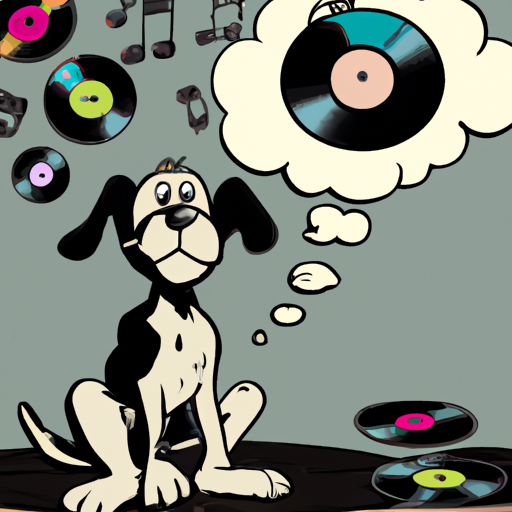As a passionate dog lover, you likely have a playlist of your favorite tunes to share with your canine companion. But, have you ever wondered, what songs do dogs like? This is a fascinating topic that combines the science of canine cognition with the universal language of music.
Table of Contents
- Understanding Canine Hearing
- The Effect of Music on Dogs
- Types of Music Dogs Prefer
- Creating a Playlist for Your Dog
- Frequently Asked Questions
Key Takeaways
- Dogs have a different range of hearing compared to humans.
- The type of music dogs like can depend on their breed, age, and personality.
- Classical music often has a calming effect on dogs.
- Creating a playlist for your dog can help reduce anxiety and stress.
Understanding Canine Hearing
To understand what songs dogs may like, we first need to explore their auditory capabilities. Dogs have a different range of hearing compared to humans. They can hear frequencies ranging from 40 Hz to 60,000 Hz, while humans hear between 20 Hz and 20,000 Hz. This means dogs can hear sounds that are too high-pitched for us to detect.
Interestingly, dogs also react differently to various pitches. For instance, lower pitches often evoke a sense of calm, while higher pitches can stimulate excitement or agitation. These reactions can provide valuable insight when choosing songs for your dog.
The Effect of Music on Dogs
There’s significant evidence to suggest that music can have a profound impact on dogs. A study published in the journal Psychology Today revealed that dogs could distinguish between different genres of music and displayed distinct behaviors in response to each.
Music has been used as a therapeutic tool in various canine settings, from reducing anxiety in shelters to calming dogs during veterinary visits. OneTopDog shares a comprehensive article on how to use music as a stress relief tool for your dog.
Types of Music Dogs Prefer
So, what type of music do dogs like? Research suggests that dogs respond best to classical music. It seems to have a calming effect, likely due to its soothing rhythms and lower frequencies.
- Classical Music: Studies have shown that dogs tend to rest more and bark less when exposed to classical music.
- Reggae and Soft Rock: A study by the Scottish SPCA and University of Glasgow found that dogs showed positive behavioral changes when listening to reggae and soft rock.
- Personalized Dog Music: Some companies, like RelaxMyDog, offer music specifically composed for dogs, taking into account their unique hearing capabilities.
Creating a Playlist for Your Dog
Creating a playlist for your dog can be a fun and rewarding activity. Start by observing your dog’s response to different music genres.
Here are some steps to guide you:
- Observe Your Dog’s Behavior: Note your dog’s reaction to different songs. Do they seem calm, agitated, or indifferent?
- Choose a Variety of Genres: Include classical, reggae, and soft rock songs in your playlist. You can also add songs from RelaxMyDog.
- Adjust the Volume: Ensure the music isn’t too loud, as dogs have sensitive hearing.
- Observe and Adjust: Keep an eye on your dog’s behavior when the music is playing and adjust the playlist as needed.
Remember, every dog is unique, so what works for one might not work for another. It’s all about finding what your dog enjoys and responds well to.
Frequently Asked Questions
1. Can music help my dog with separation anxiety?
Yes, certain types of music, like classical, can help reduce anxiety in dogs. It’s worth trying a specialized dog music service like Through a Dog’s Ear for music specifically designed to calm dogs.
2. Can dogs respond to the sound of their owner’s voice in songs?
While not strictly music-related, dogs can recognize their owner’s voice and may respond positively to hearing it. You might consider recording a song or message for your dog.
3. Are there any types of music dogs don’t like?
Dogs may respond negatively to loud, heavy, or chaotic music. Always monitor your dog’s reaction to any new sounds or music.
So, caregivers, the next time you’re curating a playlist, consider adding a few tracks for your furry friend. Music can be a powerful tool for bonding with your dog, and who knows, you might just discover their new favorite tune!



